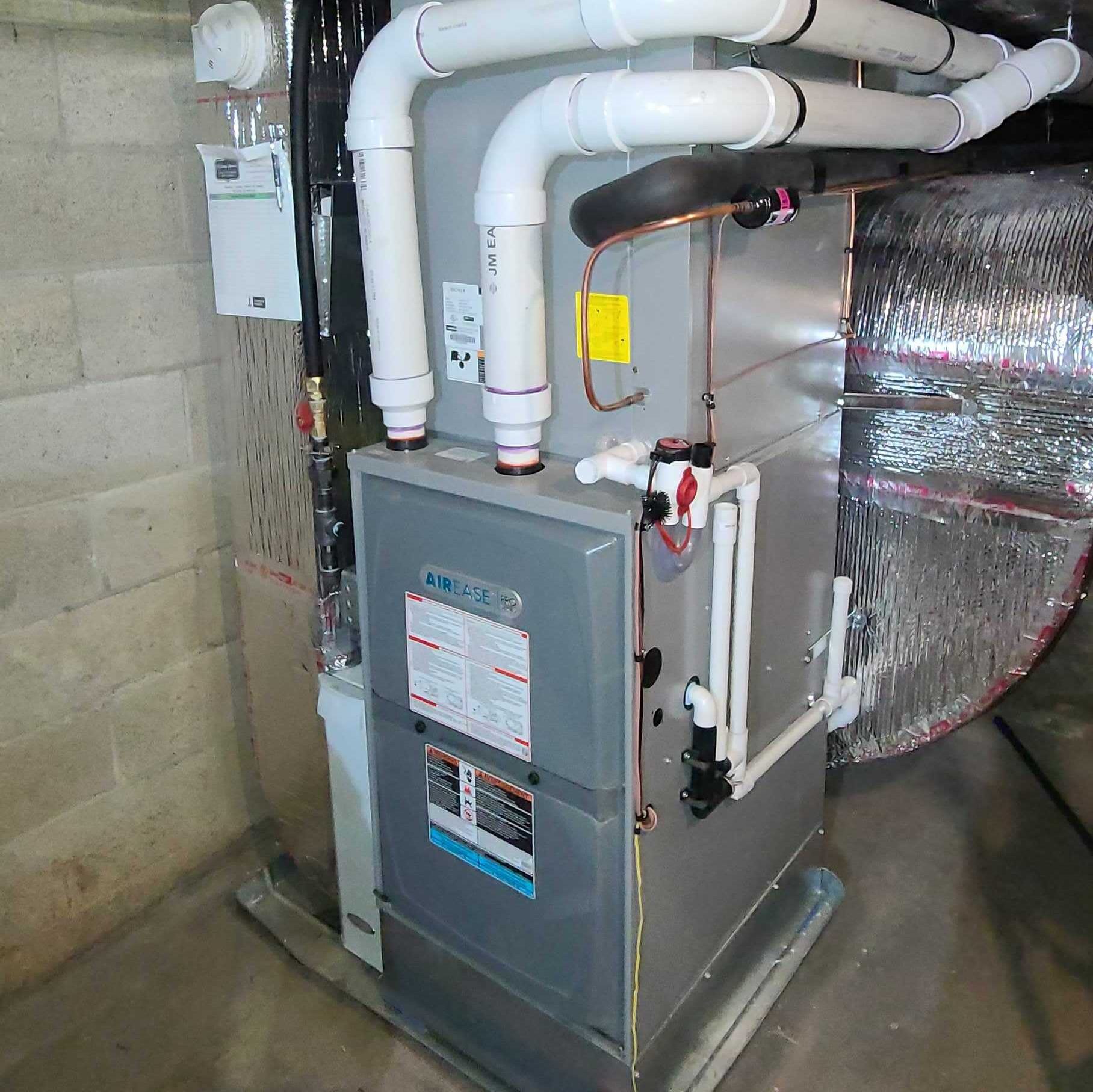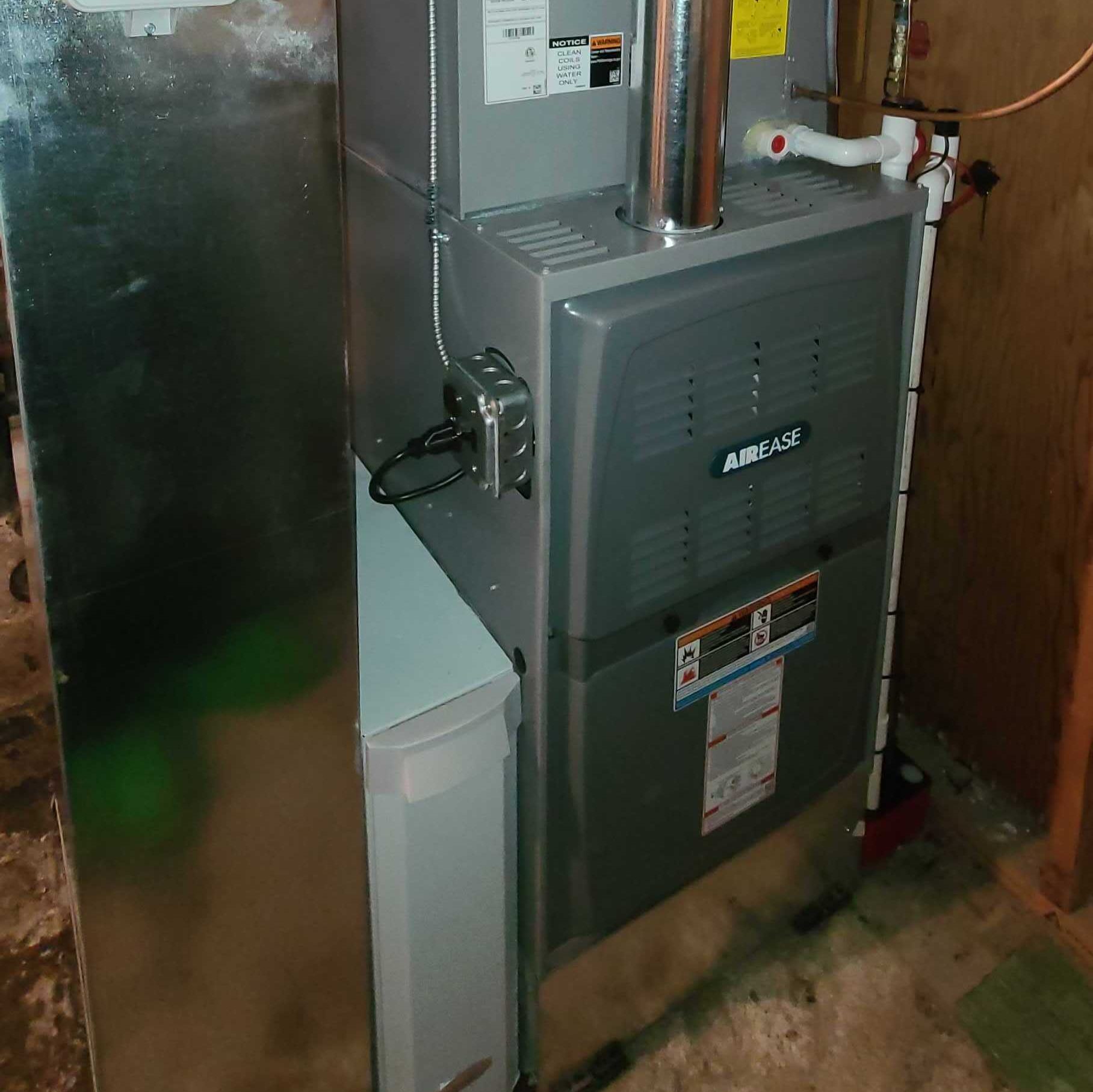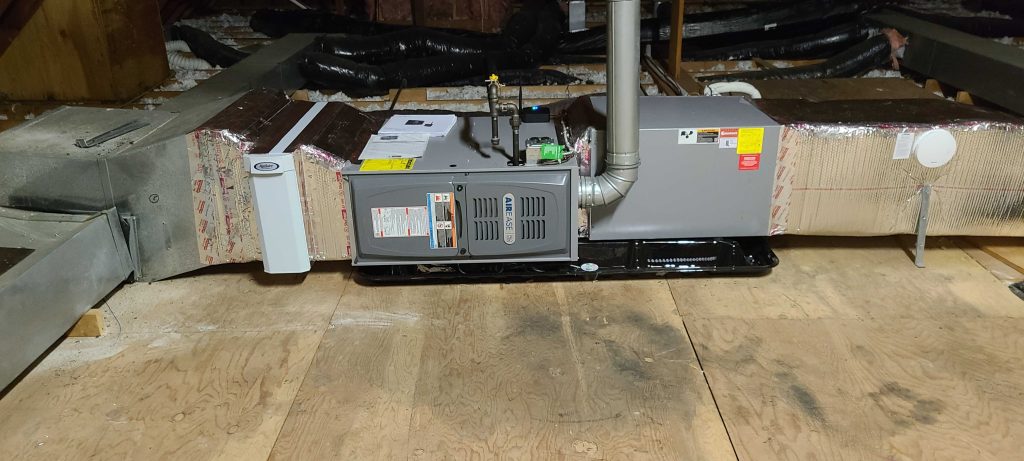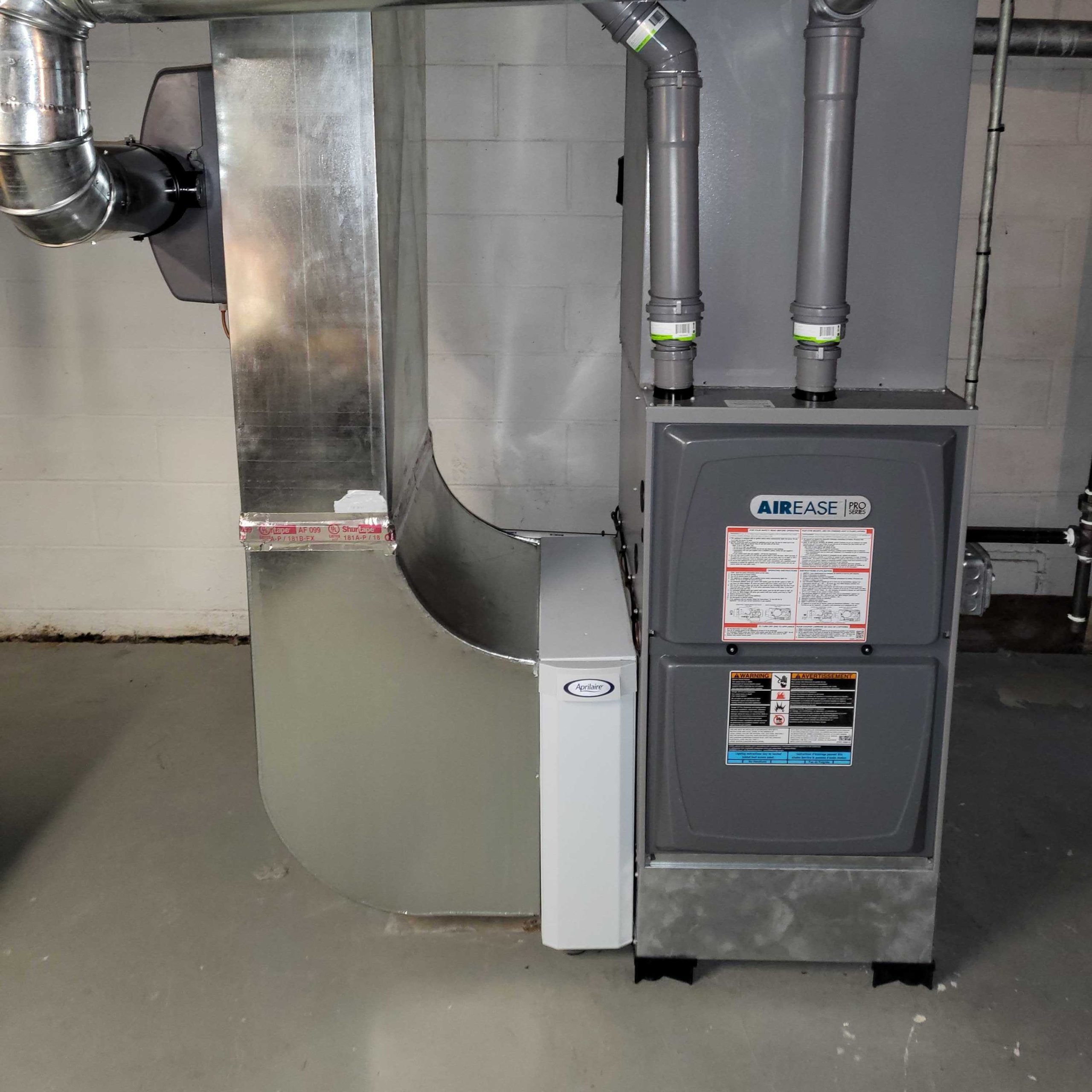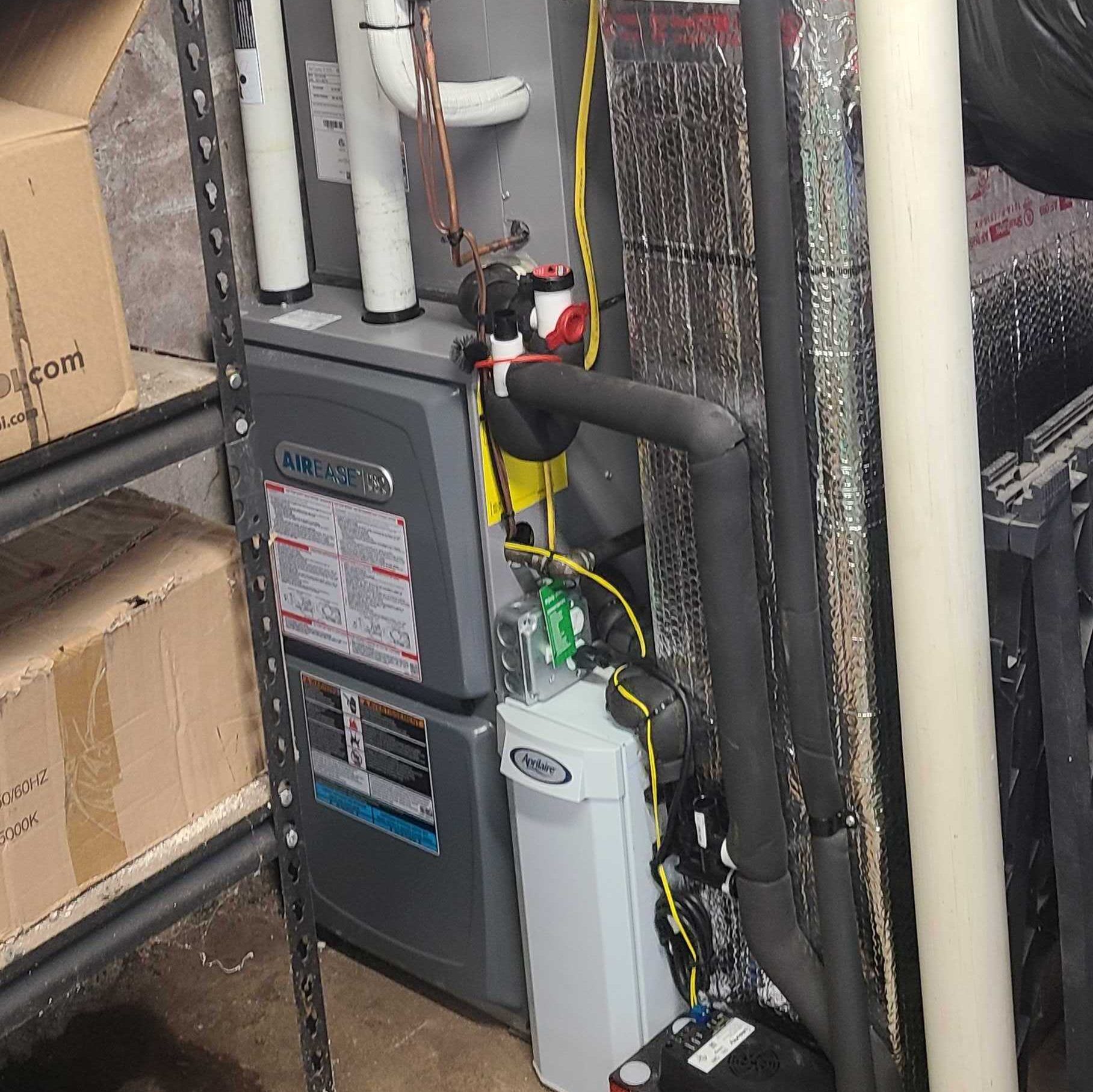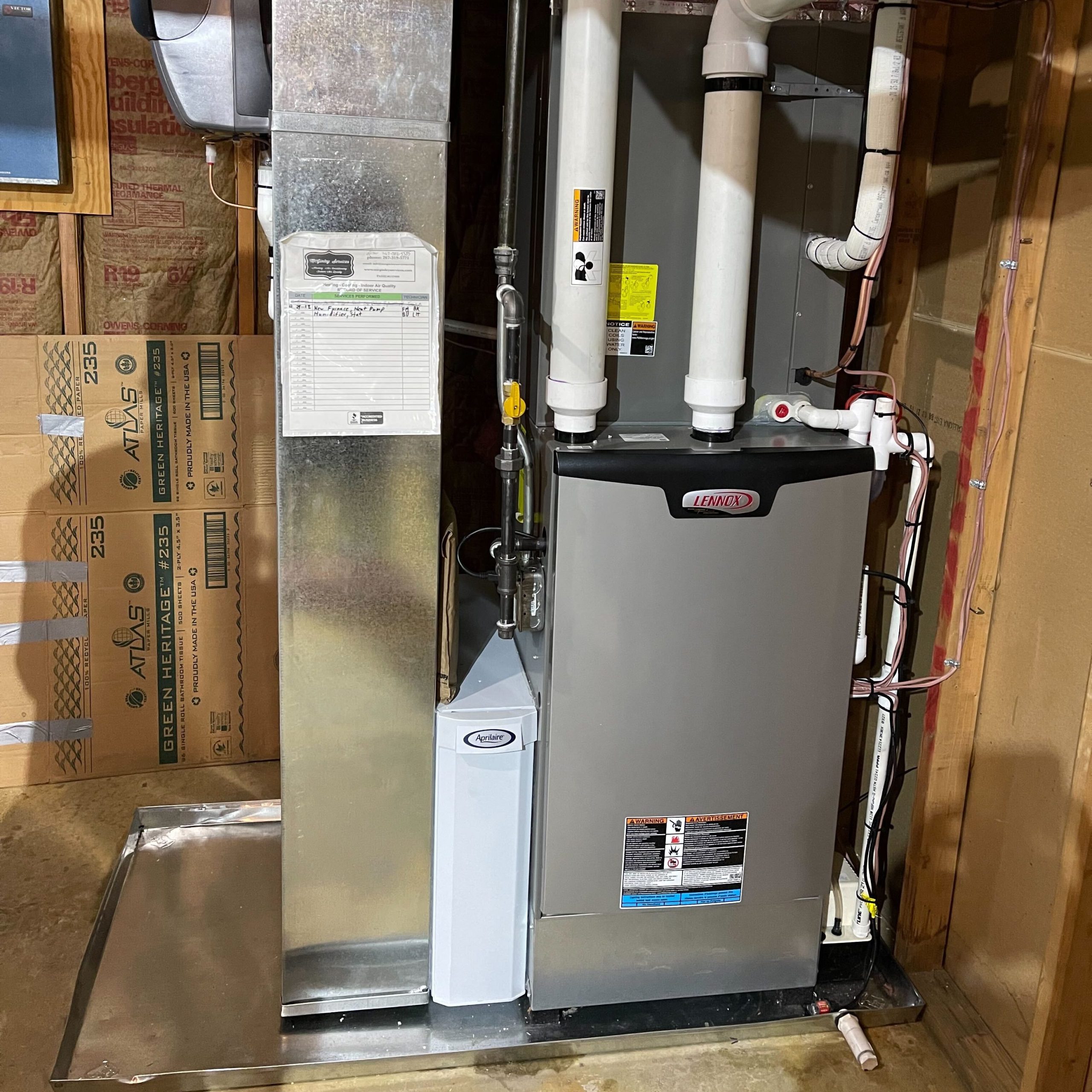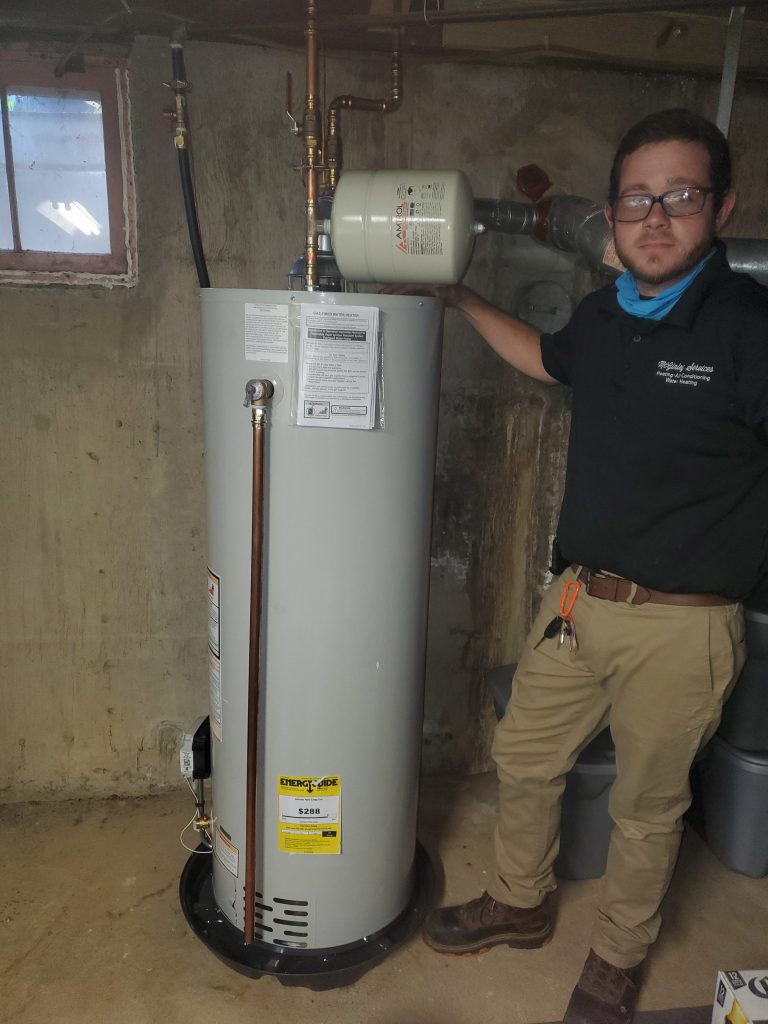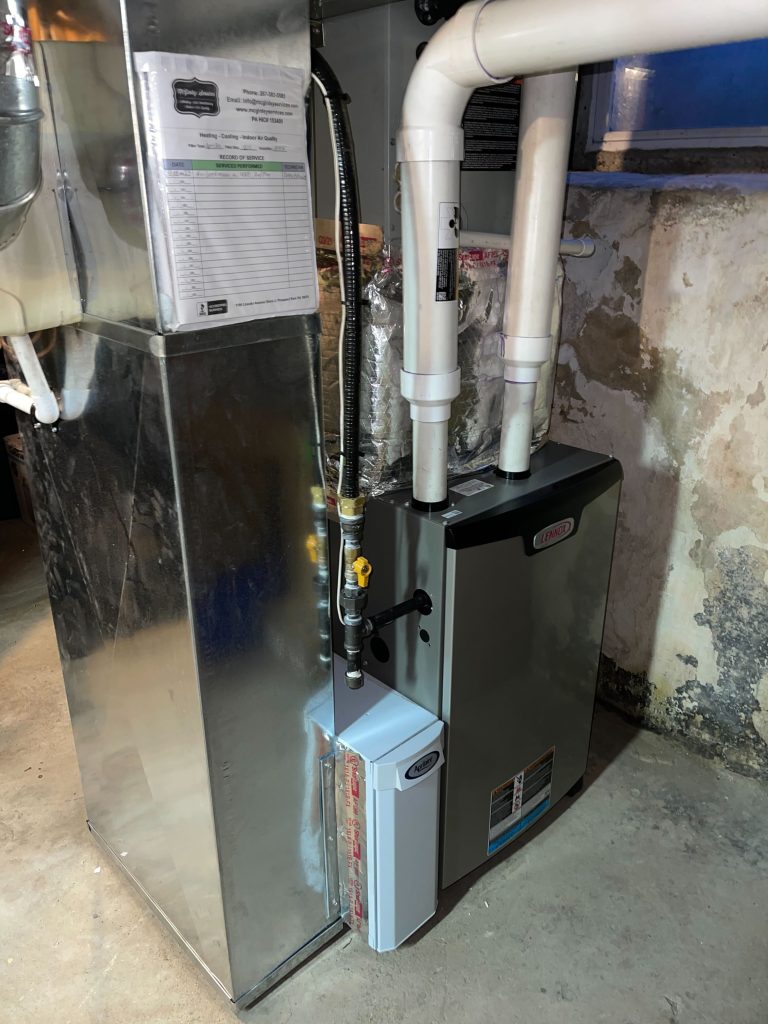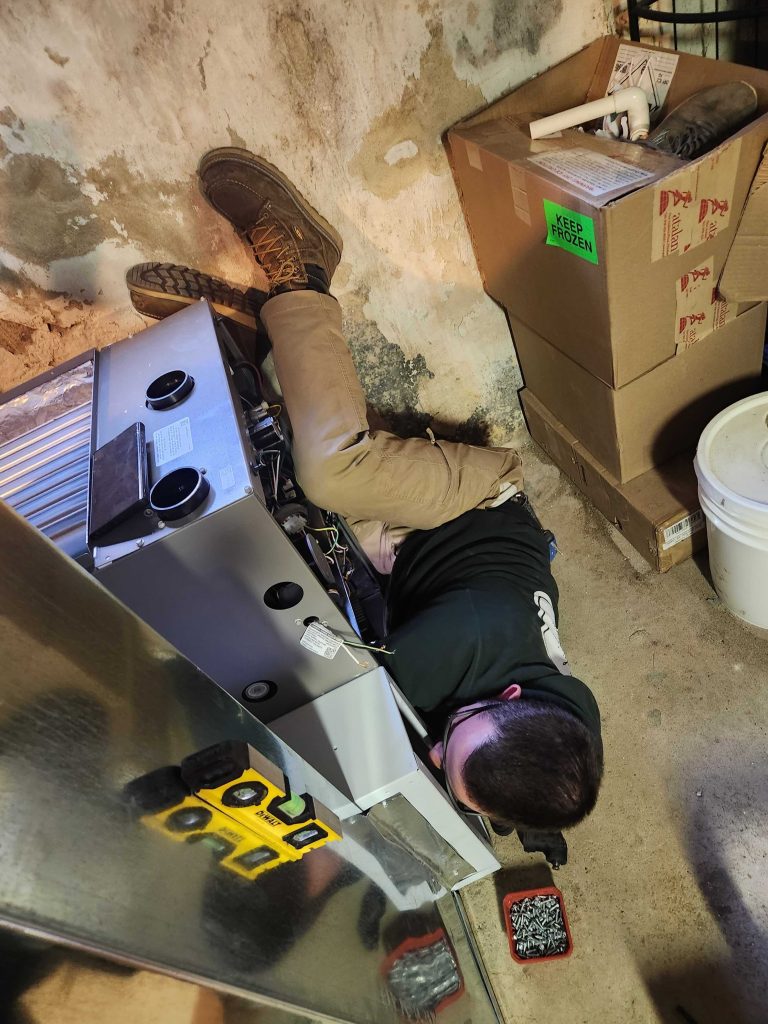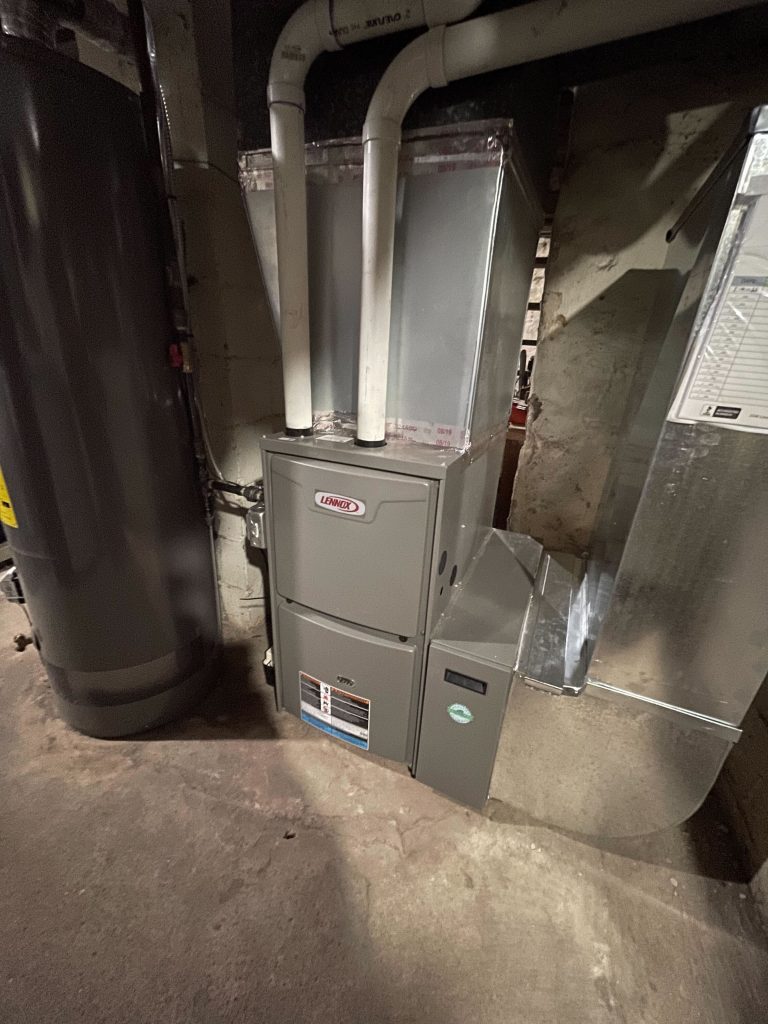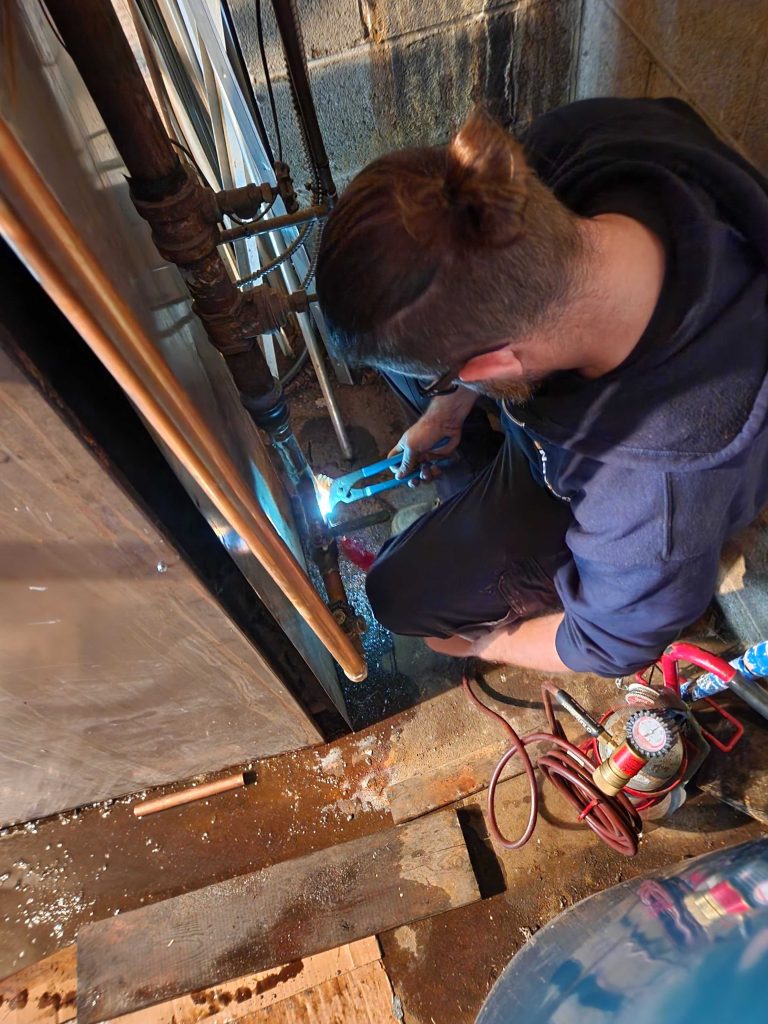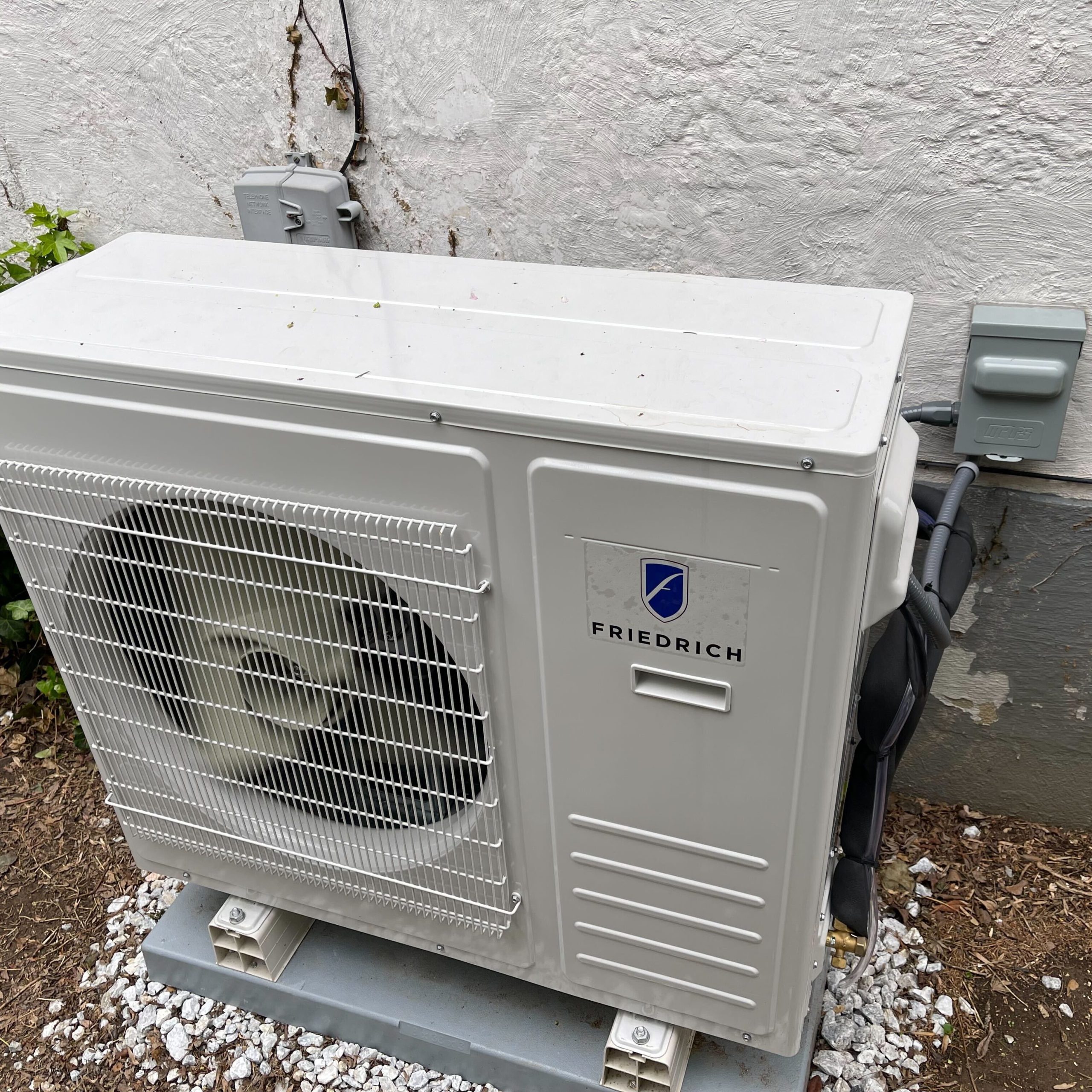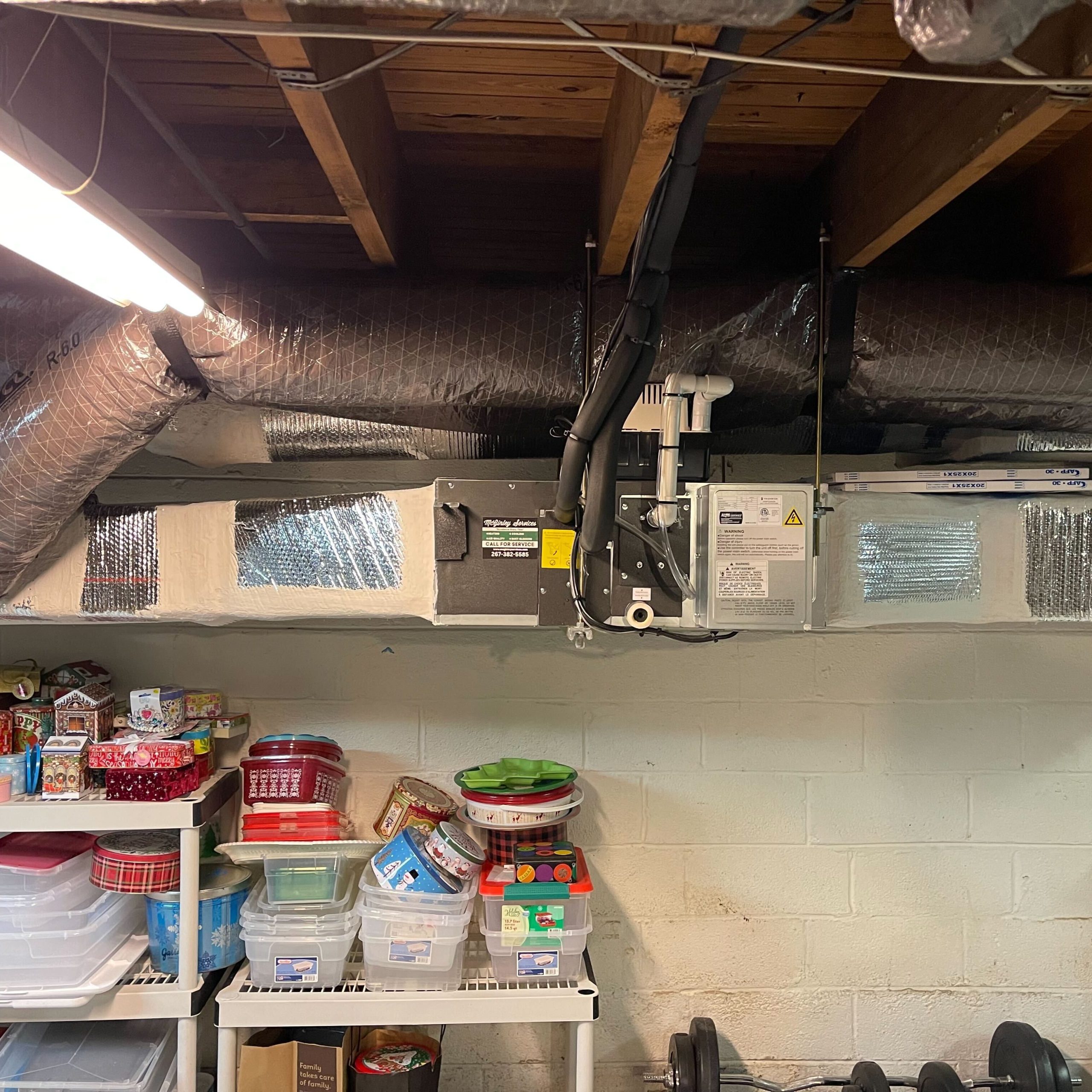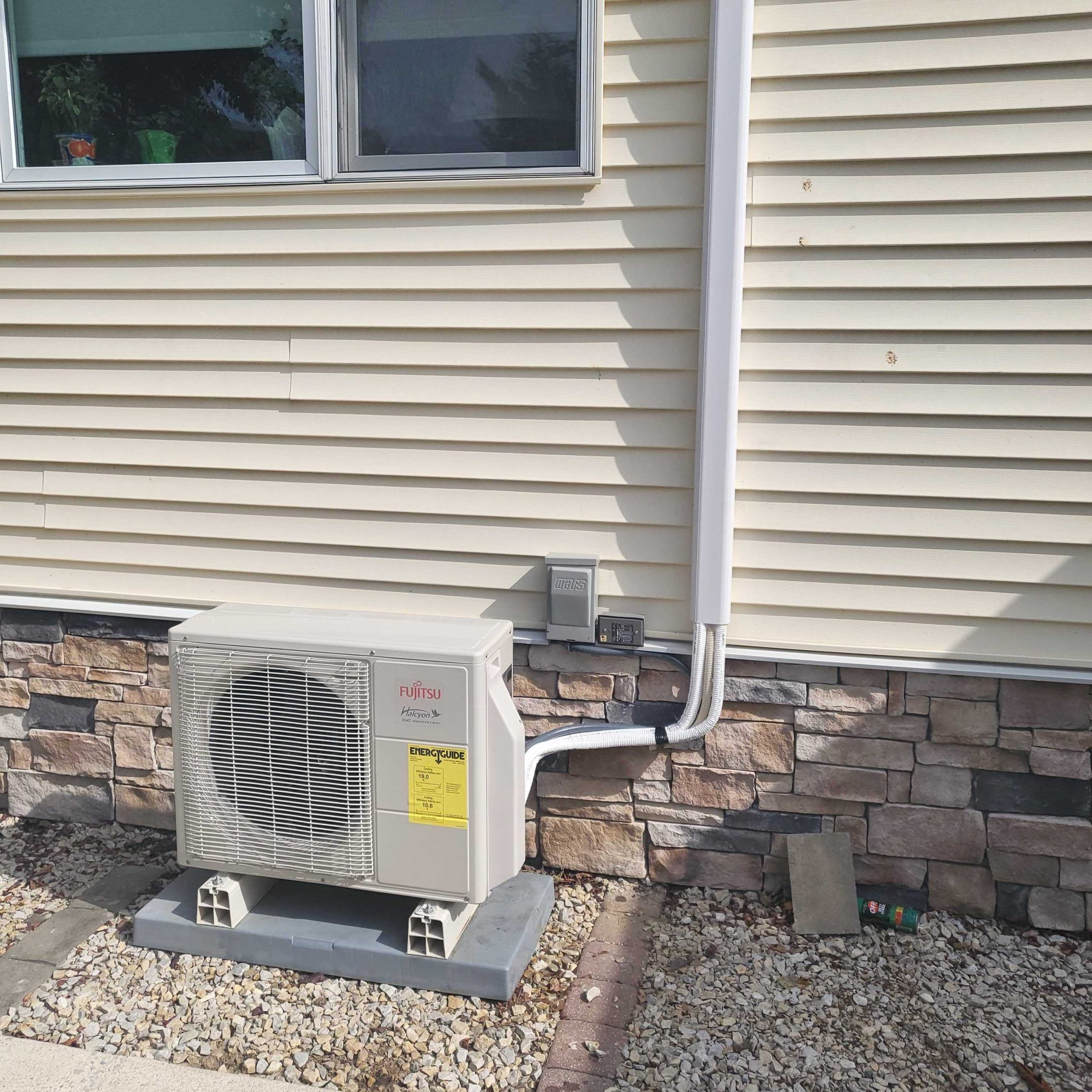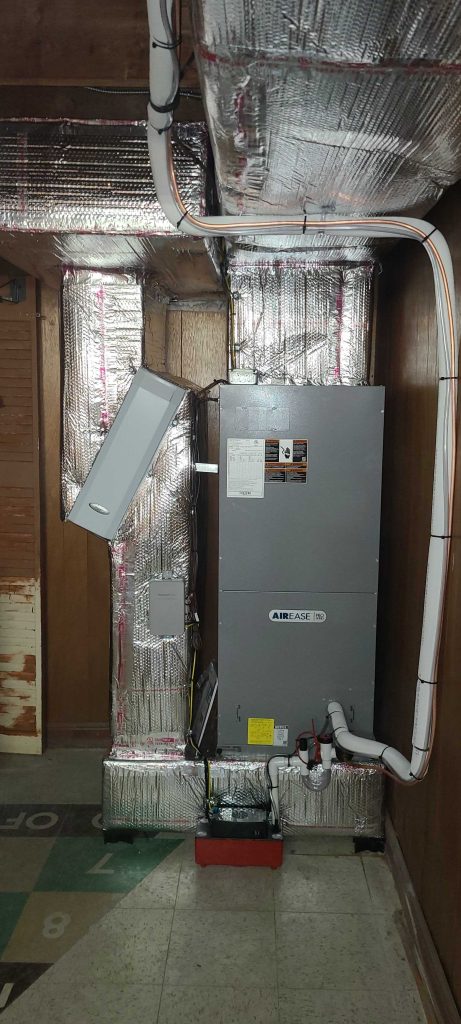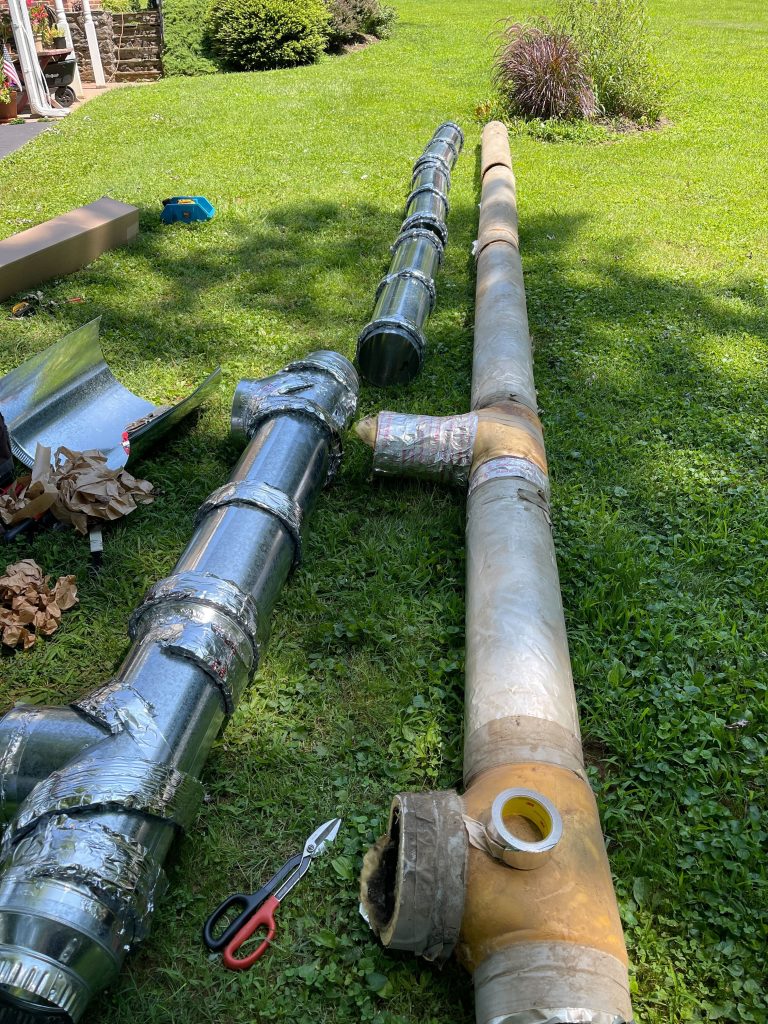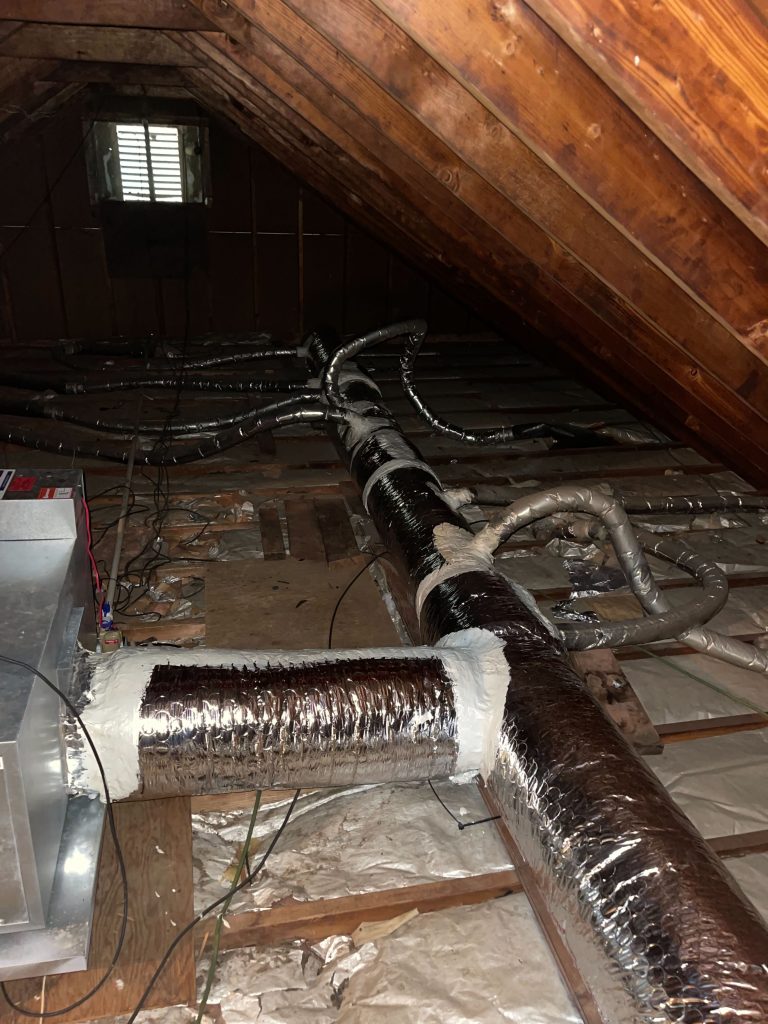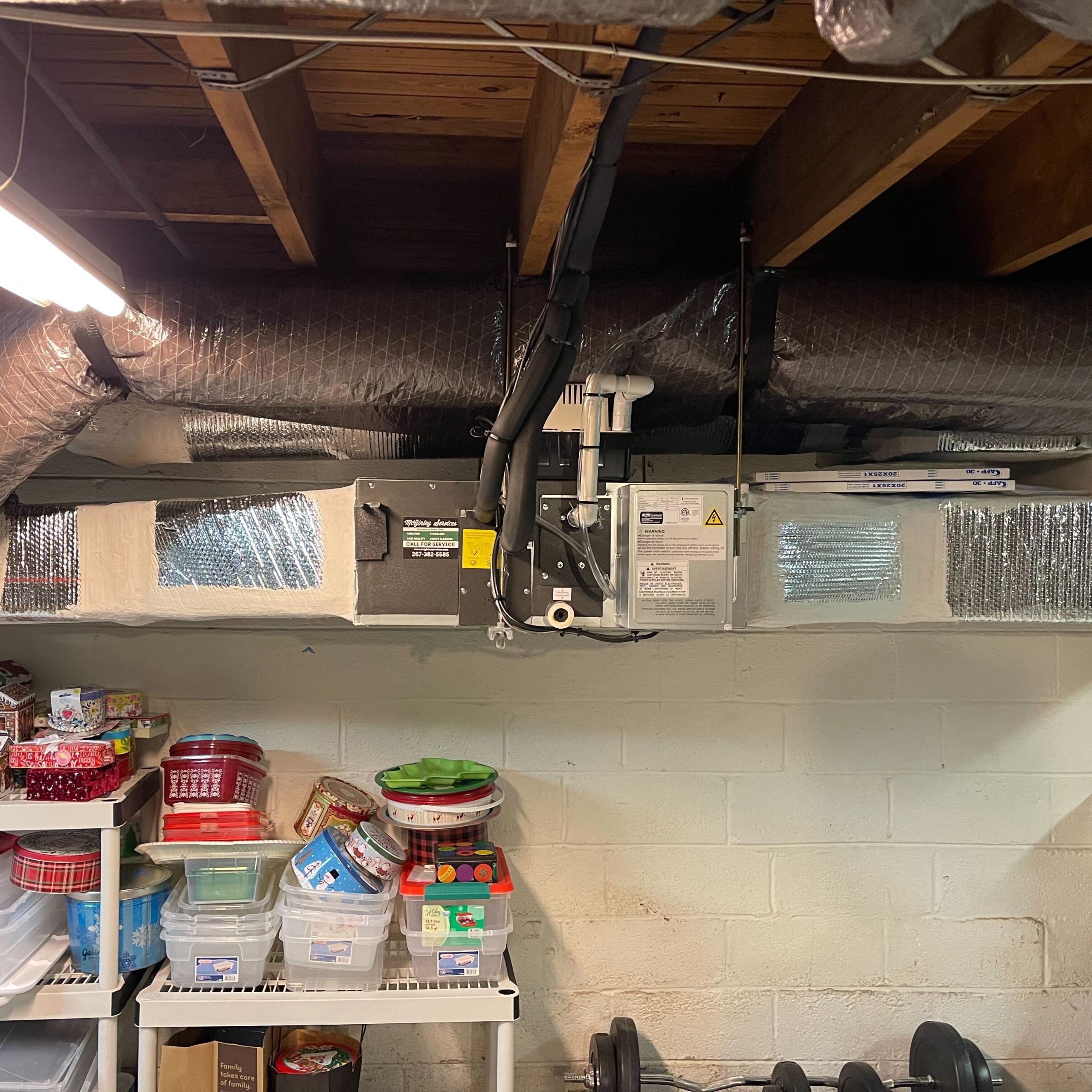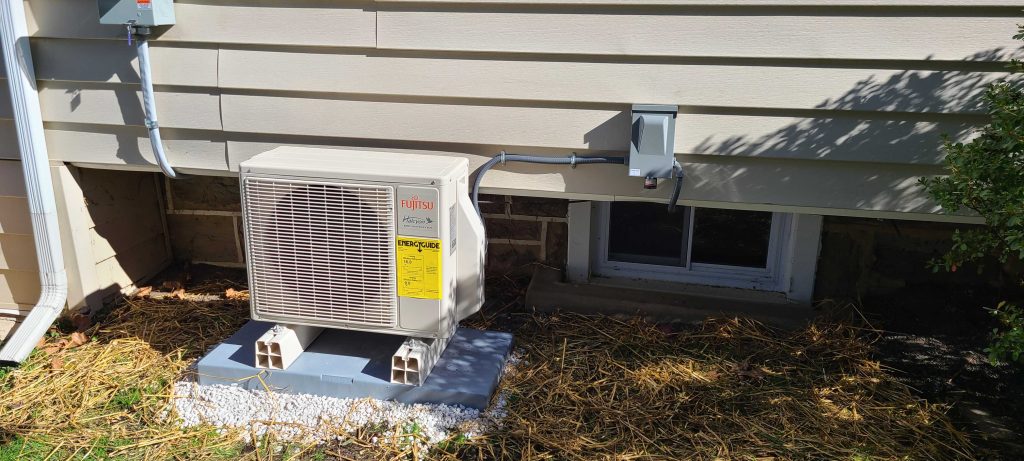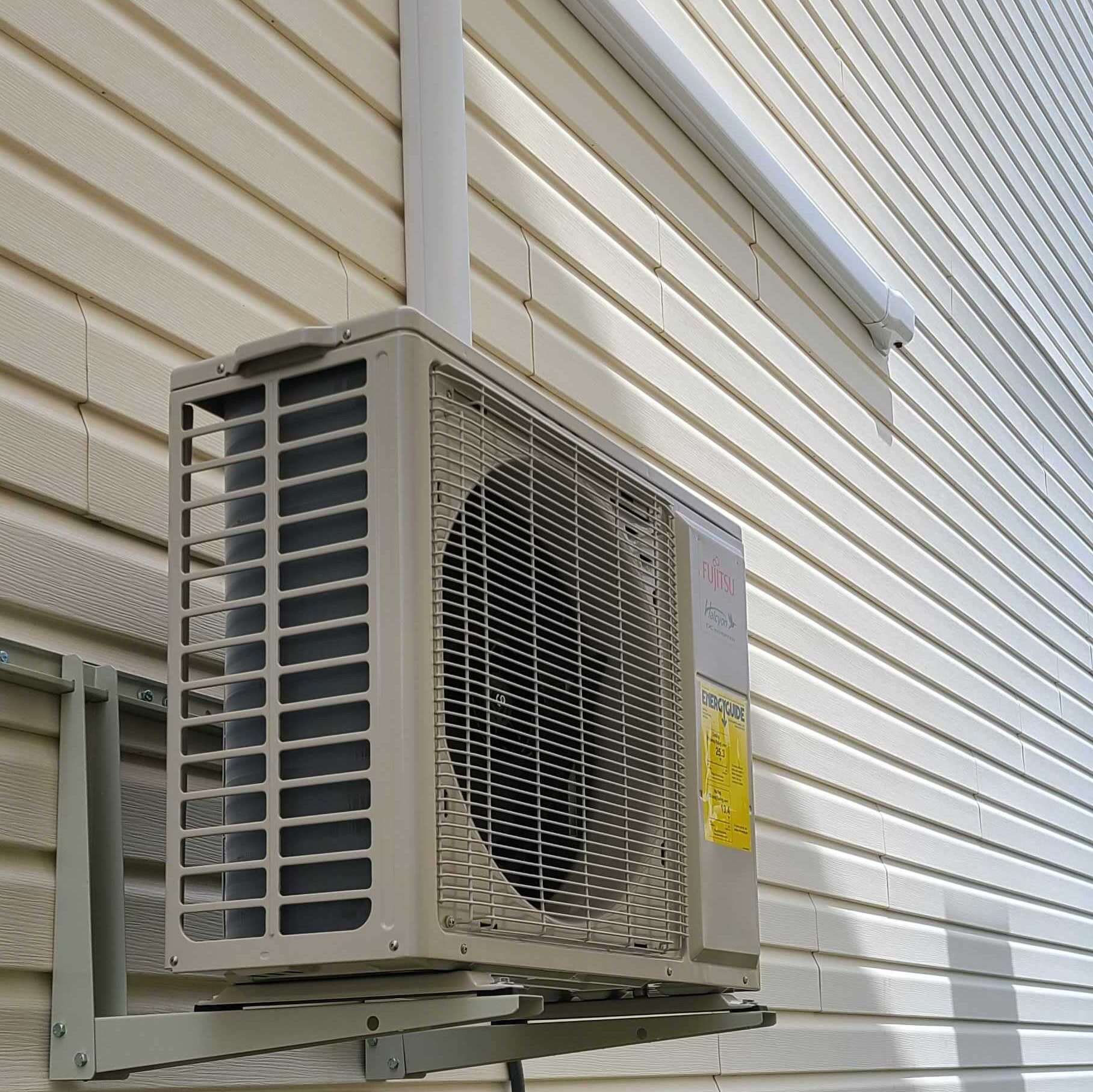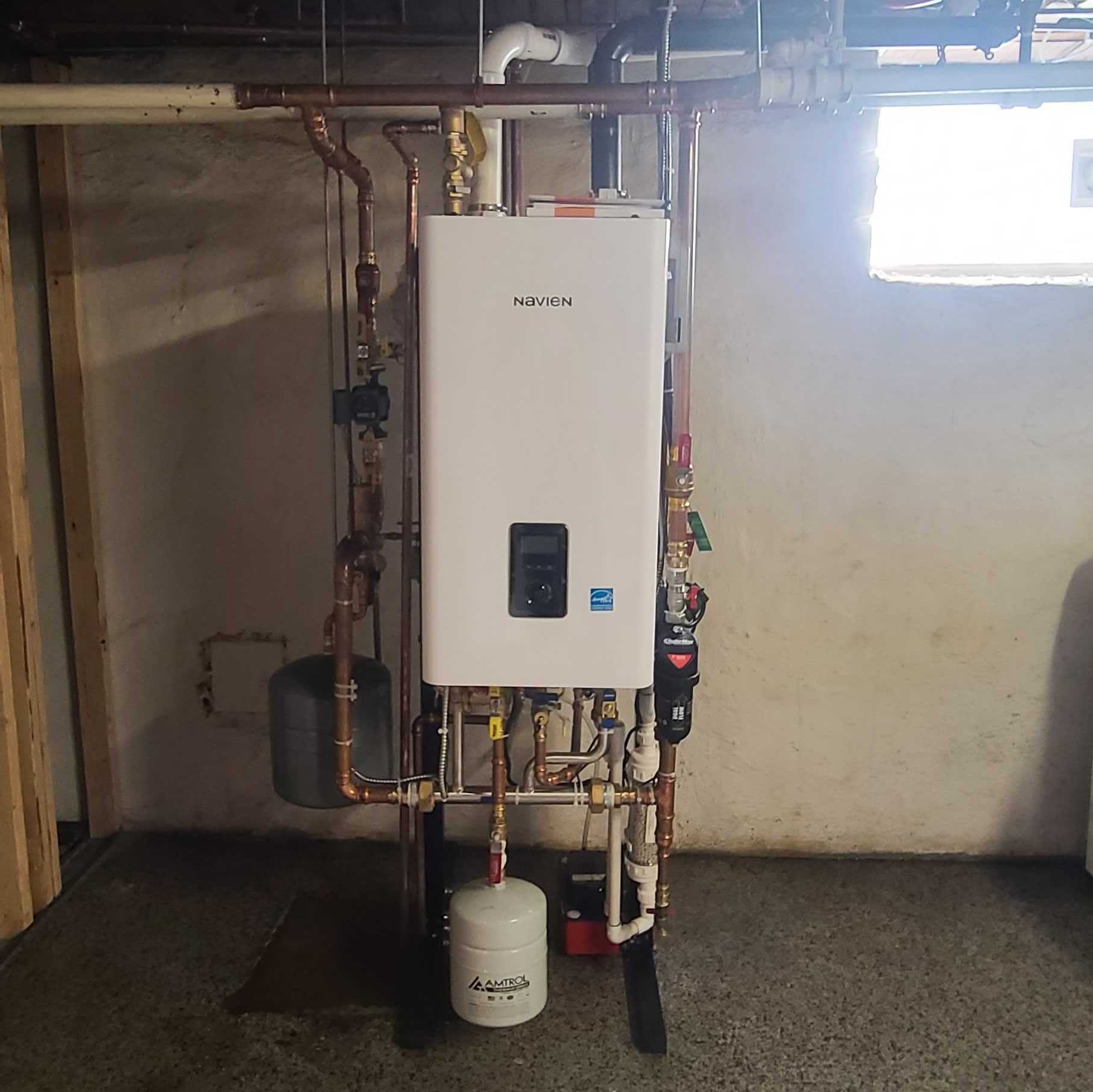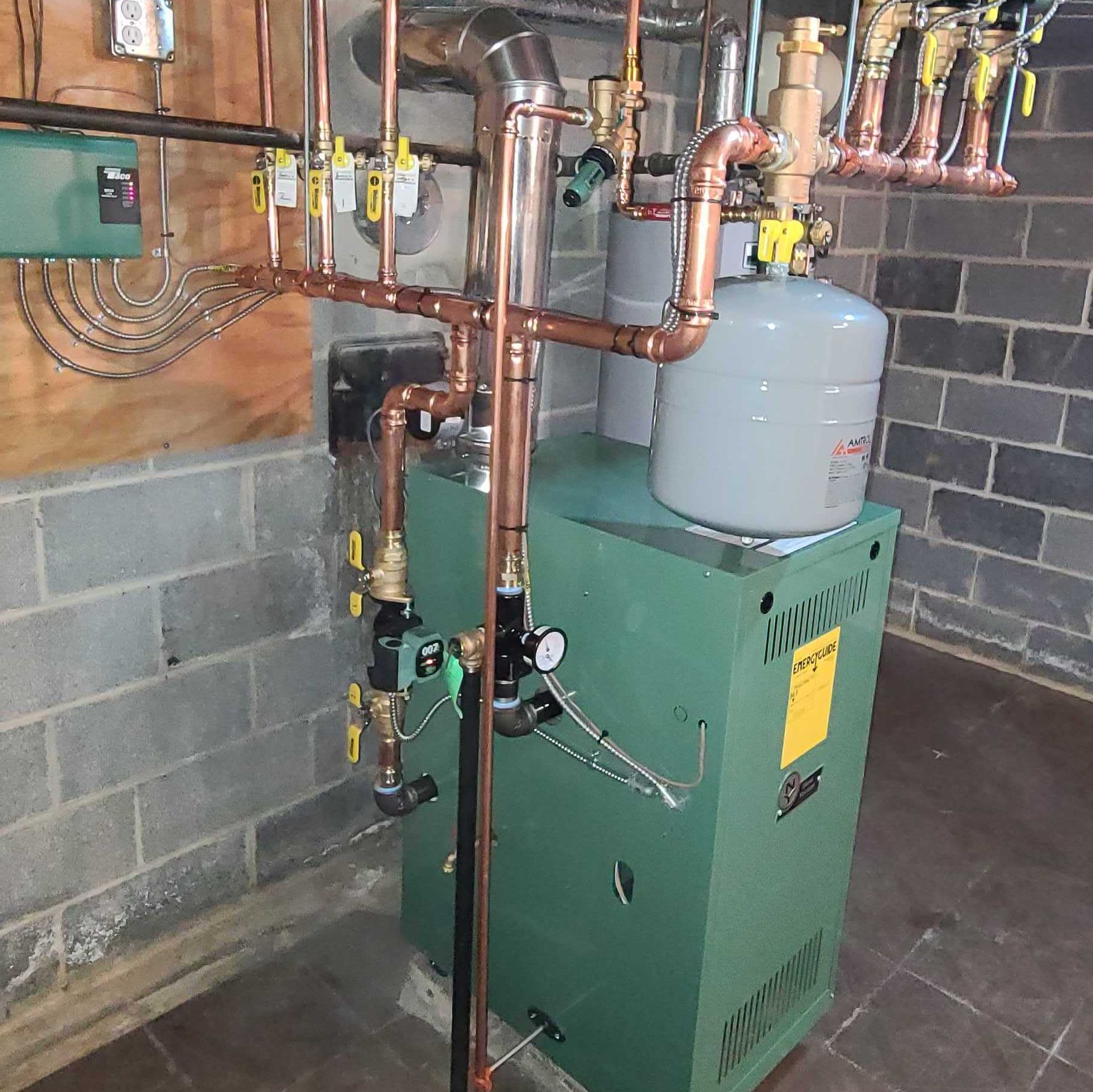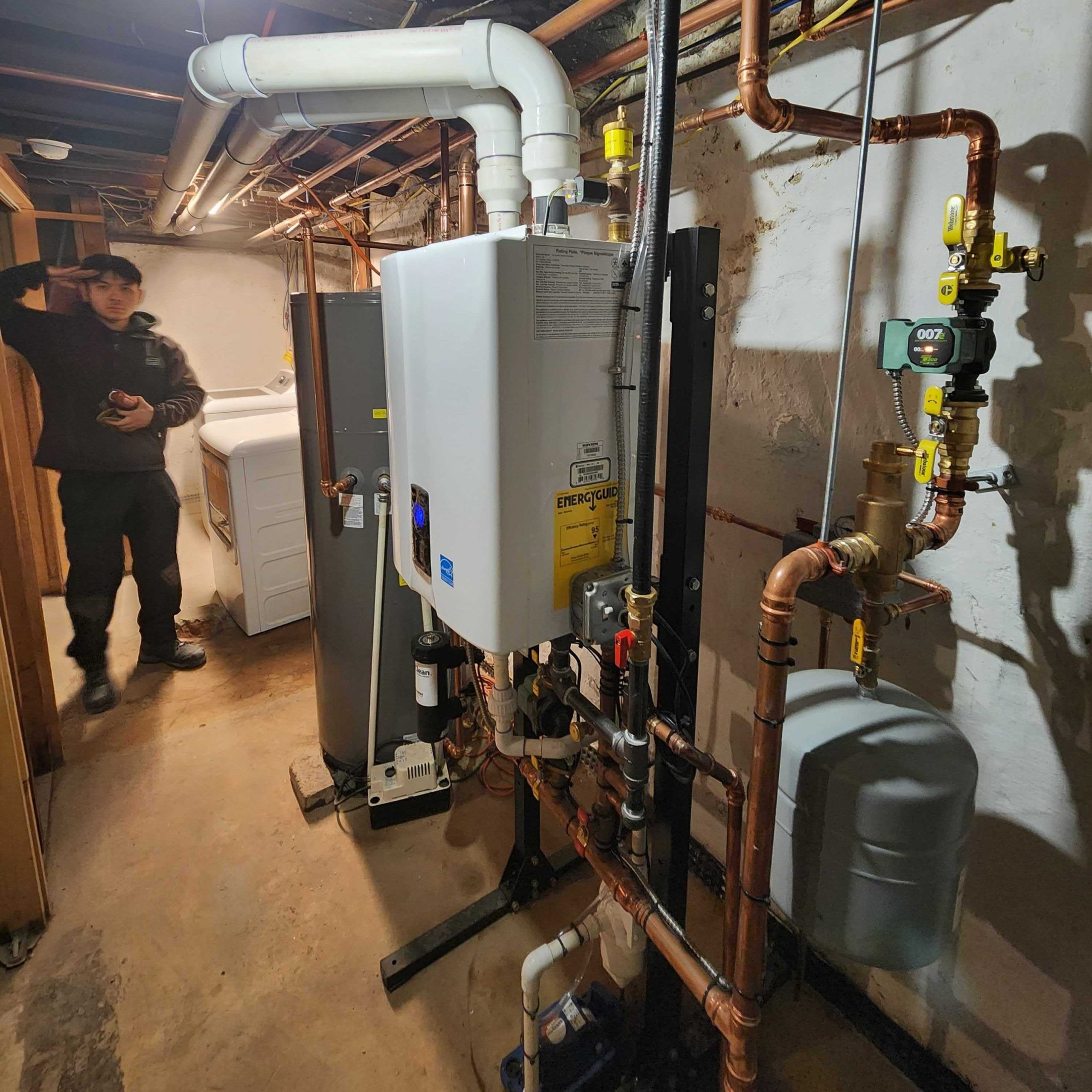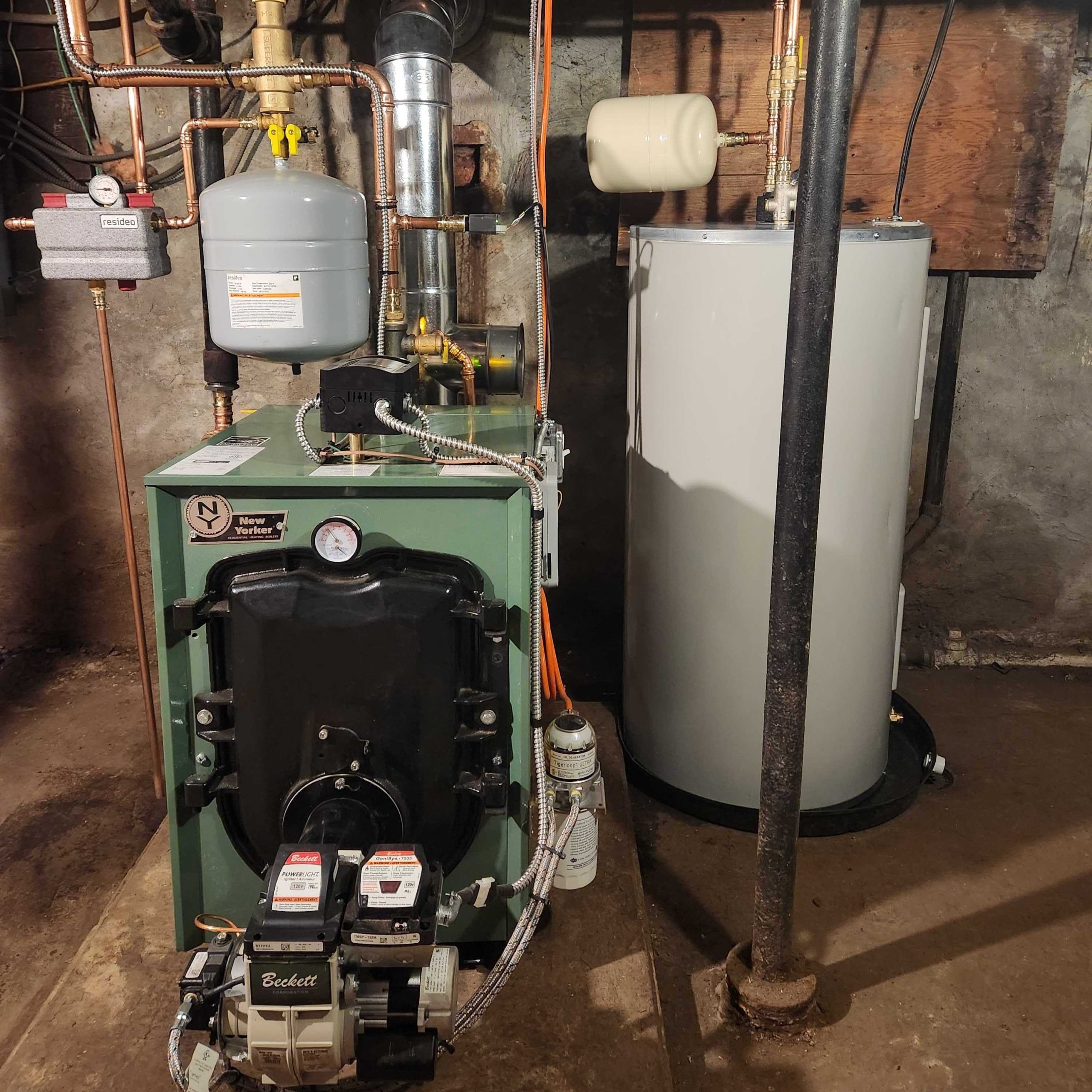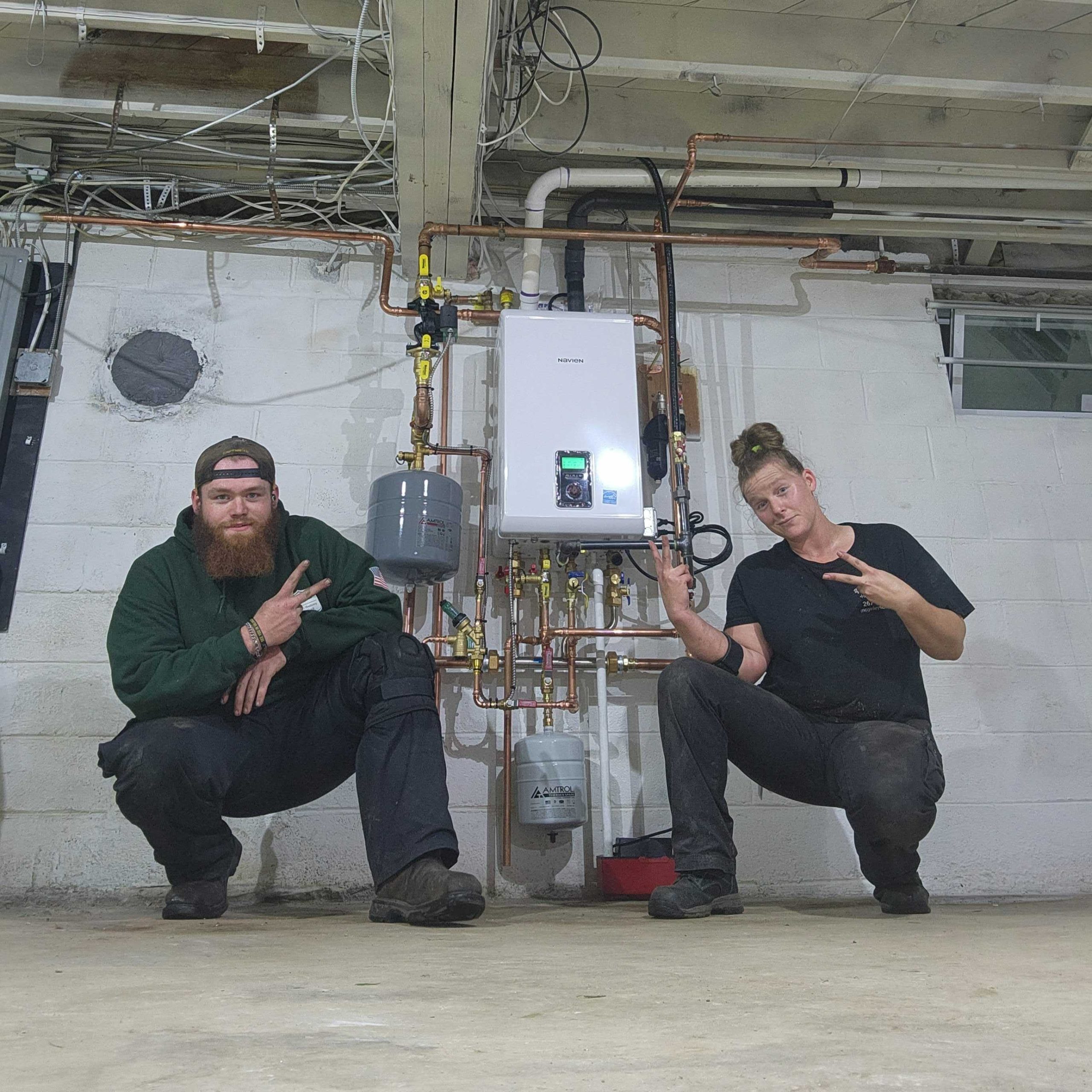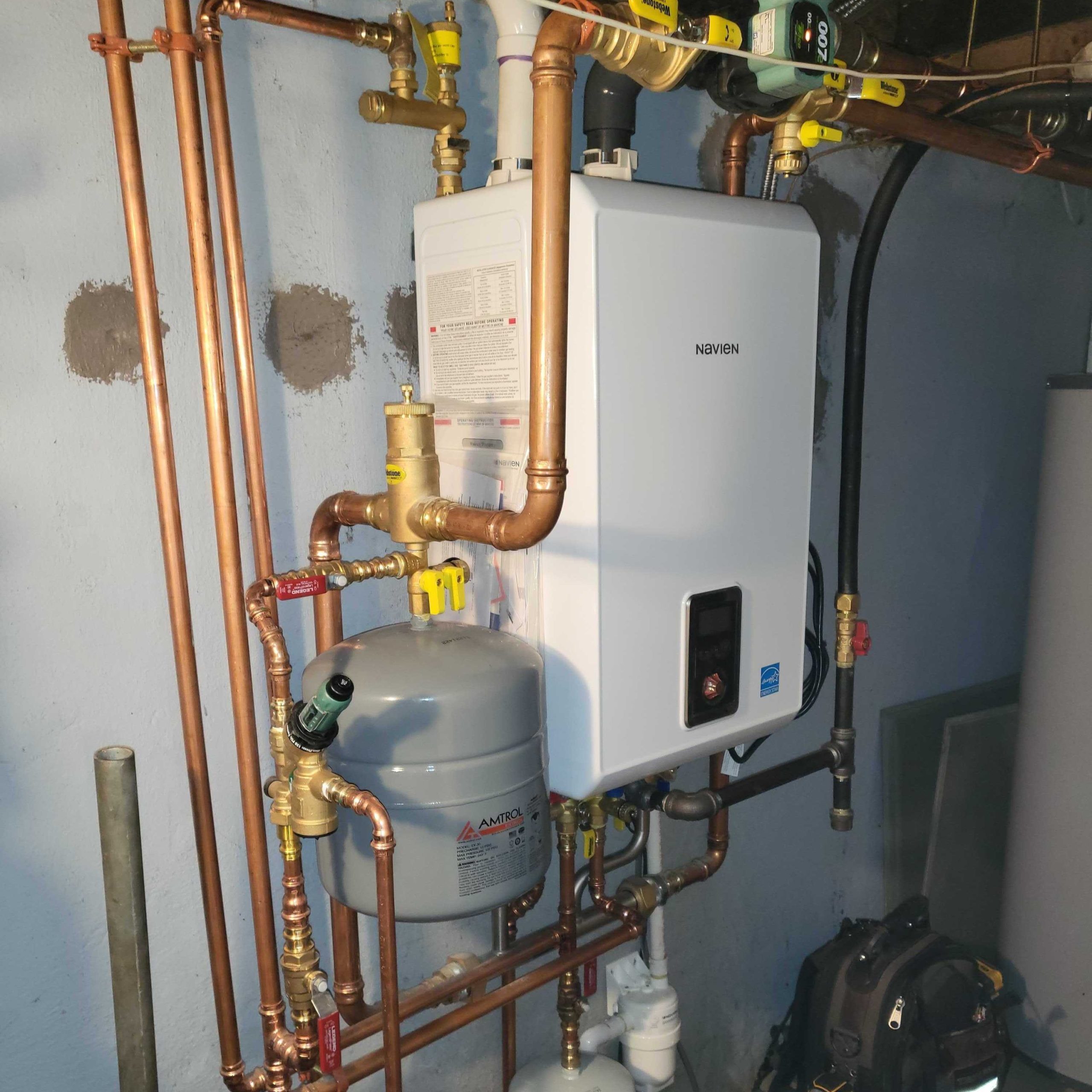Dealing with a cracked heat exchanger in your gas furnace is a significant concern that needs immediate attention due to the potential health risks and system inefficiencies it can cause. This comprehensive guide combines crucial information from McGinley Services to help you understand the problem, its symptoms, and the solutions available.
What is a Heat Exchanger and Why Do They Crack?
The heat exchanger is a critical component of your furnace, consisting of metal coils that transfer heat from combustion gases to the air inside your home while preventing these gases from entering your living space. Over time, several factors contribute to the cracking of heat exchangers:
- Natural Wear and Tear: Continuous expansion and contraction due to heating and cooling cycles can fatigue the metal, leading to cracks.
- Clogged Air Filters: Restricting airflow can cause overheating and stress on the heat exchanger. This it the easiest thing the do as a homeowner to prevent a major heater repair.
- Improper Furnace Sizing: Both undersized and oversized furnaces can lead to overheating or excessive condensation, contributing to cracks.
- Aging: As the furnace ages, the likelihood of cracks developing increases, especially in units over 15-20 years old.
Preventing Heat Exchanger Failure
Homeowners can take proactive steps to prevent their heat exchanger from failing:
- Regular Maintenance: Annual servicing a.k.a. tune-up’s by qualified professionals like McGinley Services can identify and address issues before they escalate.
- Change Filters Regularly: Keeping air filters clean ensures proper airflow and reduces strain on the heat exchanger.
- Proper Sizing: Ensure your furnace is correctly sized for your home to avoid overheating and unnecessary stress on the heat exchanger.
- Monitor Furnace Performance: Pay attention to any changes in furnace performance, including unusual noises or heating inefficiencies, and address them promptly.
What Happens When Your Heat Exchanger is Cracked?
When the heat exchanger in your furnace develops a crack, it becomes a significant safety hazard for your home and family. The primary risk associated with a cracked heat exchanger is the leakage of carbon monoxide (CO) into your living space. Carbon monoxide is an extremely dangerous gas because it is colorless and odorless, making it hard to detect without a proper CO detector. Inhaling CO can lead to a range of health problems, from mild symptoms like headaches, dizziness, and nausea to more severe effects such as unconsciousness and, in extreme cases, fatal poisoning. This risk is particularly acute during the colder months when the furnace is in constant use, increasing the chances of CO buildup in the home.
Apart from the health risks, a cracked heat exchanger also compromises the efficiency and safety of your furnace. With a breach in the heat exchanger, your furnace will struggle to operate efficiently, leading to increased energy consumption and higher utility bills. There’s also a heightened risk of fire hazards, as the crack can allow flammable gases to escape and potentially ignite. Given these risks, it’s vital to address any issues with the heat exchanger immediately. Regular maintenance and timely repairs, especially services provided by experienced professionals like McGinley Services, are crucial in preventing these dangers and ensuring the safe and efficient operation of your heating system.
How Much Does it Cost to Replace a Cracked Heat Exchanger?
The cost of replacing a cracked heat exchanger can vary significantly, often amounting to several thousand dollars. This cost is influenced by factors such as the make and model of your furnace, the complexity of the replacement process, and the price of the new heat exchanger itself. Heat exchangers are intricate and vital components of your furnace, and replacing them involves meticulous labor and expertise, which contributes to the overall cost. In some cases, the warranty of your furnace might cover part of these expenses, but this is typically only for newer models. For older furnaces, warranties are likely expired, necessitating full payment out of pocket. In the event a large expense arises we do offer financing be it “heater repair” or “heater replacement”.
In many situations, particularly with older furnaces, it might be more economical in the long run to replace the entire furnace rather than just the heat exchanger. This decision is based not only on the cost comparison but also on considerations of efficiency and safety. Newer furnace models are generally more energy-efficient and comply with the latest safety standards. Additionally, replacing the whole furnace ensures all components are up-to-date and reduces the likelihood of future breakdowns. While the initial investment is higher compared to just replacing the heat exchanger, the long-term benefits, including improved efficiency, lower energy bills, and peace of mind, often make complete furnace replacement a more viable option. You can get a free estimate online using our estimation tool.
Can I Run the AC with a Cracked Heat Exchanger?
Operating your air conditioning system when you have a cracked heat exchanger in your furnace is generally not recommended. Despite the AC and furnace being distinct systems, they are interconnected in ways that mean a malfunction in one can impact the other. A cracked heat exchanger, typically found in the furnace, can introduce significant safety risks and inefficiencies when the furnace is in use. While using the AC might not directly worsen the crack, the overall strain on the HVAC system could exacerbate the underlying issues. More importantly, running the AC under these conditions might overlook the necessity of addressing the cracked heat exchanger, leading to potential safety hazards, including the risk of carbon monoxide leakage. Therefore, it’s crucial to have such issues inspected and resolved by professionals like McGinley Services before continuing to use any part of the HVAC system.
What is a Major Indicator of a Cracked Heat Exchanger?
The major indicators of a cracked heat exchanger include:
- Strange Odors: A scent similar to formaldehyde can indicate leaking gases.
- Soot Build-up: White soot near the burners is a sign of incomplete combustion.
- Change in Flame Appearance: A shift from blue to orange or yellow flames.
- Audible Sounds: Rattling or popping noises when the furnace is running. Could also be.
- Presence of Carbon Monoxide: Symptoms of CO poisoning in household members or alerts from CO detectors.
Preventative Measures and Solutions
The best approach to preventing and addressing a cracked heat exchanger is regular maintenance and annual tune-up’s by professionals like McGinley Services. These inspections can catch early signs of wear and tear, ensuring your system runs efficiently and safely. If a crack is detected, McGinley Services can advise on the best course of action, whether it’s repairing the damaged part or opting for a full system replacement.
Remember, the safety and efficiency of your heating system are paramount. Regular checks and prompt attention to any signs of trouble will keep your home comfortable and safe. For all your HVAC concerns, including issues with heat exchangers, McGinley Services offers expert solutions and advice.
